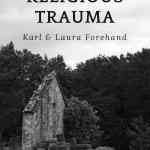The ubiquitous hoopla over Christmas creches, sayings, and celebrations seems to concern the secular powers that be. After all, Christian churches are all still on board with the program. Right?
Given the assumption that the struggle involves Culture more so than Church, revisiting H. Richard Niebuhr’s classic paradigms of Christ and Culture might prove beneficial. In quoting Niebuhr’s material, I shall be substituting Christmas for Christ and taking other necessary liberties with his foundational work.
1) Christmas Against Culture
Whatever may be the customs of the society in which the Christian lives, and whatever the human achievements it conserves, Christmas is seen as opposed to them. Christmas confronts men with the challenge of an “either-or” decision.
From a broad perspective, we see this paradigm operating with certain reactionary and fundamentalist groups. Eschewing family gatherings, secular celebrations, and all manner of things in honour of the Feast, the choice is either Christmas or the World. The World is viewed as the Great Satan and Christmas is forever opposed to the ways and customs of the World. All is done in the name of correctness. Christmas is viewed as being perfect and pure – and it is the job of each individual to protect and save Christmas from the ways of the World and wayward Christians. A heretic is spotted under every bush, especially if he puts up a tree in Advent — even uses the word Advent as opposed to Nativity Fast — decorates his house, wears green and red, sings a Carol before the 25th, mentions “Santa,” etc. [p.40]
2) Christmas of Culture
In this group, Christmas appears as a festival of human culture and history. The development of Christmas traditions is regarded as great achievements. It is at this time of year, during the celebration of the Feast, that the aspirations of men toward their values are brought to a point of culmination. Christmas confirms what is best in the past, and guides the process of civilization to its proper goal. Moreover, Christmas is part of culture in the sense that it is part of the social heritage that must be transmitted and conserved. In our time answers of this kind are given by Christians who note the close relation between Christianity and Western civilization, between the festivities of Christmas and democratic institutions.
As in Social Evolution, so develops the Feast. The orthodox interpretation of the Feast is viewed as the “fullness” of Christmas, but other interpretations and traditions are seen as grappling after the same Truth, the same goal. This paradigm is very tempting for those wishing to assimilate their religious beliefs with the current culture. They may mix Culture with Christmas to the point where the lines are blurred. [p.41]
3) Christmas Above Culture
This group views Christmas as the fulfillment of cultural and festival aspirations and the restorer of the human spirit. Yet there is in Christmas something that neither arises out of culture nor contributes directly to it. It is discontinuous as well as continuous with social life and its culture. Christmas enters into life from above with gifts which human aspiration has not envisioned and which human effort cannot attain unless the Feast relates men to a supernatural society and a new value-center. Christmas is, indeed, a Christmas of culture, but it is also a Christmas above culture.
Practitioners of this category have never met a Christmas concert or affair that they didn’t — or weren’t tempted to – attend. They tend to be motivated by scholarly works. Much like a Western understanding of the study of Theology, these folks make a Science of the Feast. [p.42]
4) Christmas and Culture in Paradox
In this group, the duality and inescapable authority of both Christmas and culture is recognized, but the opposition between them is also accepted. Those falling into this category are Christians who are subject to the tension that accompanies obedience to two authorities who do not agree yet must both be obeyed. They are convicted that obedience and loyalty to the institutions of society and fealty to the celebration of Christmas is both contradictory and the norm. Those in this category are seen as subject to two moralities, and as a citizen of two worlds that are not only discontinuous with each other but largely opposed. In the polarity and tension of Christmas and culture life must be lived precariously and sinfully in the hope of a justification which lies beyond history. [pp.42-43]
5) Christmas the Transformer of Culture
This type is the conversionist solution to the problem. Those in this category understand with the members of the other four groups that human nature is fallen or perverted, and that this perversion not only appears in culture but is transmitted by it. Hence the opposition between Christmas and all human institutions and customs is to be recognized. Yet the antithesis does not lead either to separating Christmas from the world (as with Christmas against Culture), or to mere endurance in the expectation of transhistoral salvation (as with Christmas and Culture in Paradox). Christmas is seen as the converter of man in his culture and society, not apart from these, for there is no nature without culture and no turning of men from self and idols to the God of Christmas save in society. [p.43]
For Orthodox Christians there’s another possible paradigm:
6) Christmas and Culture toward Theosis
Plagiarizing and paraphrasing Fr Alexander Elchaninov, Diary of a Russian Priest: Theosis — or, deification — is central to the understanding of salvation for the Orthodox. The question is: What path to follow in order to reach this theosis? Which is the best way for the Christian to enter into the Feast within the life and culture around him? All paths (above paradigms) may not be equal, but each one might be spiritually profitable to some.
Participation in culture is, from one point of view, a compromise so far as the spiritual life is concerned. Is not the method of deifying the world from within — the way which St. Seraphim followed — a more sure course? Then everything else is transfigured as well. [DRP, p.93]
So it is the same at Christmas as any other time of year:
Find inner peace and thousands around you will find their salvation.











